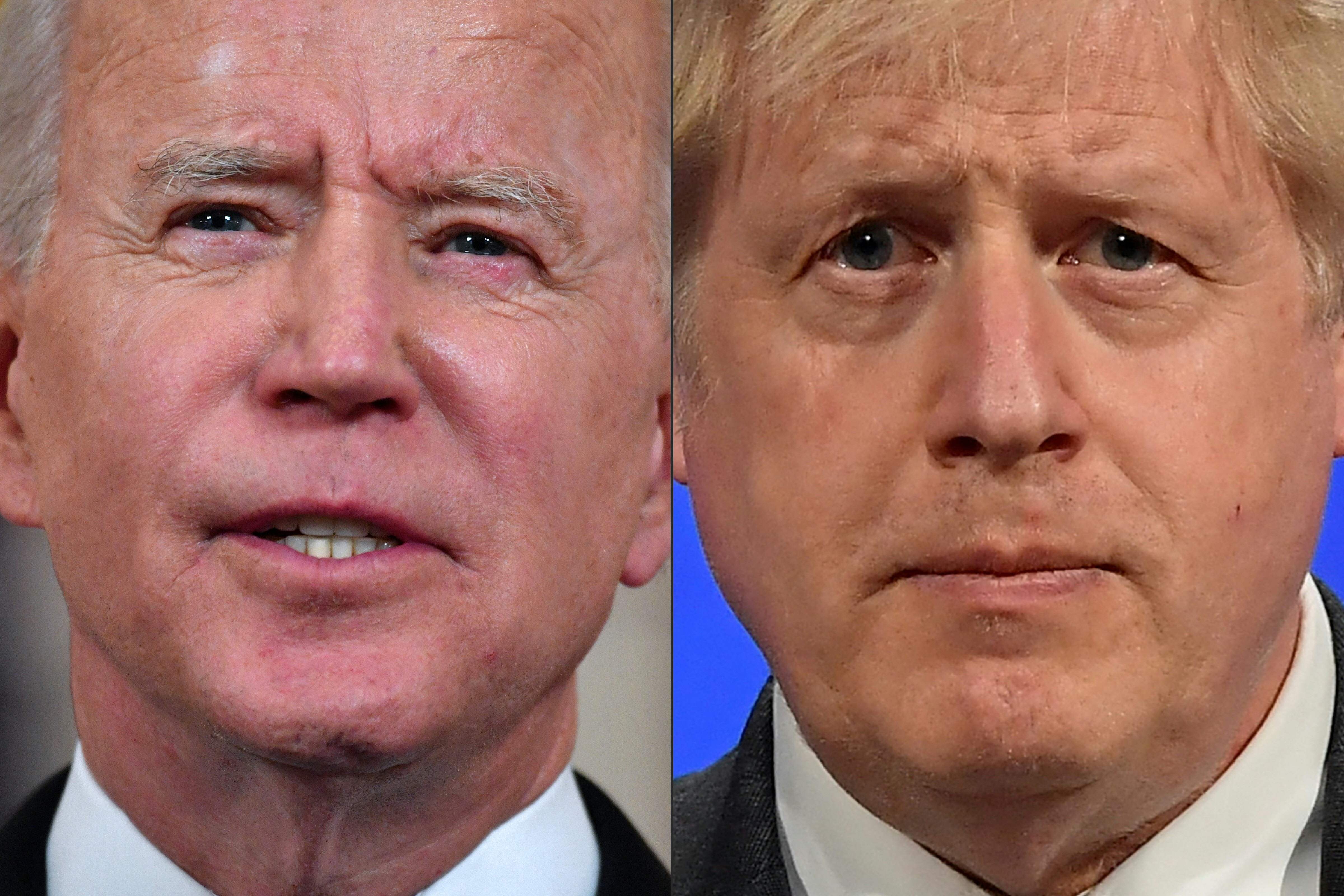Diplomats like me are worried about the G7
Are leaders like Boris Johnson and Joe Biden up to the task of leading a world crisis to a better conclusion? We have a lot of reasons to doubt it

Your support helps us to tell the story
From reproductive rights to climate change to Big Tech, The Independent is on the ground when the story is developing. Whether it's investigating the financials of Elon Musk's pro-Trump PAC or producing our latest documentary, 'The A Word', which shines a light on the American women fighting for reproductive rights, we know how important it is to parse out the facts from the messaging.
At such a critical moment in US history, we need reporters on the ground. Your donation allows us to keep sending journalists to speak to both sides of the story.
The Independent is trusted by Americans across the entire political spectrum. And unlike many other quality news outlets, we choose not to lock Americans out of our reporting and analysis with paywalls. We believe quality journalism should be available to everyone, paid for by those who can afford it.
Your support makes all the difference.It would be disingenuous to say that all eyes will be on the G7 in Cornwall this weekend. Much of the headline announcements have been precooked and announced. Statements have been made about more talk on global tax affairs to help with helping the Amazons and Googles of the world to pay their taxes fairly.
In many ways, this isn’t really a “G7 event”, considering that India, Australia, South Korea and a handful of other countries were also extended invitations. The omission of China and Russia sends a clear message, but will also make it harder to discuss the dominating issue on the agenda: Covid-19. Especially considering new variants and the plummeting or nonexistent vaccination rates in many countries at risk, this is an urgent issue. But it can’t be wholly solved without China and Russia — two of the biggest vaccine donors in the world — at the table.
To add insult to injury, the Indian delegation is already broadly self-isolating with Covid-19, after already meeting with the US and UK delegations.
Prime Minister Boris Johnson and President Joe Biden are not old friends, but rather uncomfortable acquaintances thrown together by political necessity. While both men have nursed ambitions of leadership throughout their political lives, they are just very different beasts. This was starkly illustrated in 2019, with President Biden effusively professing Boris to be a “physical and emotional clone of Donald Trump”. An older statement by Boris’ squint-and-it’s-sort-of-not-racist comments on Obama removing a bust of Churchill from the Oval Office hardly helped matters. However, the G7 is not couples’ therapy; it is global geopolitics. Boris’s actions on the border within the Irish Sea, the overarching destabilization of Brexit and Biden’s cherished Irish roots will be urgent talking points. The hand-holding “special relationship” days of Theresa May and Donald Trump will remain a wistful memory.
Within the United Nations, there is talk about a “global normal” after Covid and what that might look like. Frankly, few are confident any sense of normalcy can return this year. The reversal of the UK’s “green list” for travel is not a good omen. Yet, if Boris and President Biden — or, more likely, Foreign Secretary Raab and Secretary of State Blinken — can agree rules of engagement for the air bridge between the US and UK, that will represent progress. The likely blocker is the UK rejecting the idea of a vaccine passport. One hopes it can be overcome.
Boris has been spared blushes on the overturning of the reduction of commitment to foreign aid spending, from 0.7 percent of GDP to 0.5 percent at least for another week. While the economy is in such a precarious state, his frugal argument for “charity beginning at home” is bluntly cruel and stupid. Aside from the children in Yemen and Sudan that are having their food and medicine rations withdrawn by the removal of aid, we can only hope to see a proper end to the pandemic if lower-income countries are able to treat and vaccinate their populations. For the UK to withdraw practical help while stepping up to talk on the world stage is disappointing. Few in diplomacy believe it’s a good look.
As the emergence of the Indian or Delta variant has shown, the longer that Covid-19 is in the population, the higher chance of mutations. UK figures this week observed a 3 percent infection rate of the Delta variant in those fully vaccinated against Covid. The newer variants that will emerge may not be as kind. Some countries are really stepping up when it comes to vaccinating the world, at the expense of other, less vulnerable persons in their population. Others are not, which shows a shocking lack of foresight.
Developed countries have demonstrated that they can just about manage this virus, but developing countries are spiraling. Air bridges and summer holidays are needed – but for every day we do nothing, the virus is out there changing. Once the historical beef and Cornwall’s canapes are put aside and eaten, action and not talk will be needed. I am not entirely convinced that the politicians we currently have in attendance will be able to deliver.
Emin Pasha is the pseudonym of a United Nations diplomat based in New York
Join our commenting forum
Join thought-provoking conversations, follow other Independent readers and see their replies
Comments